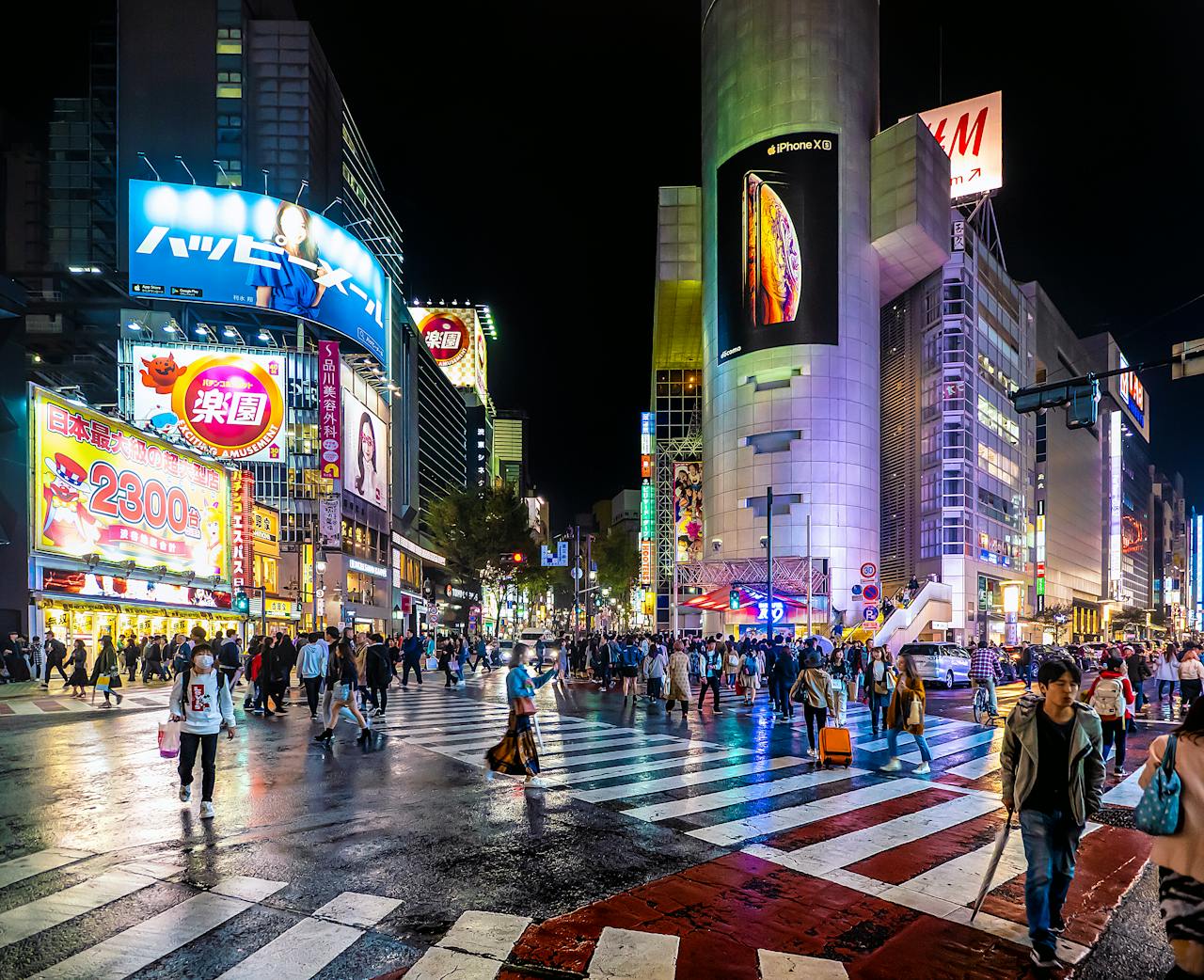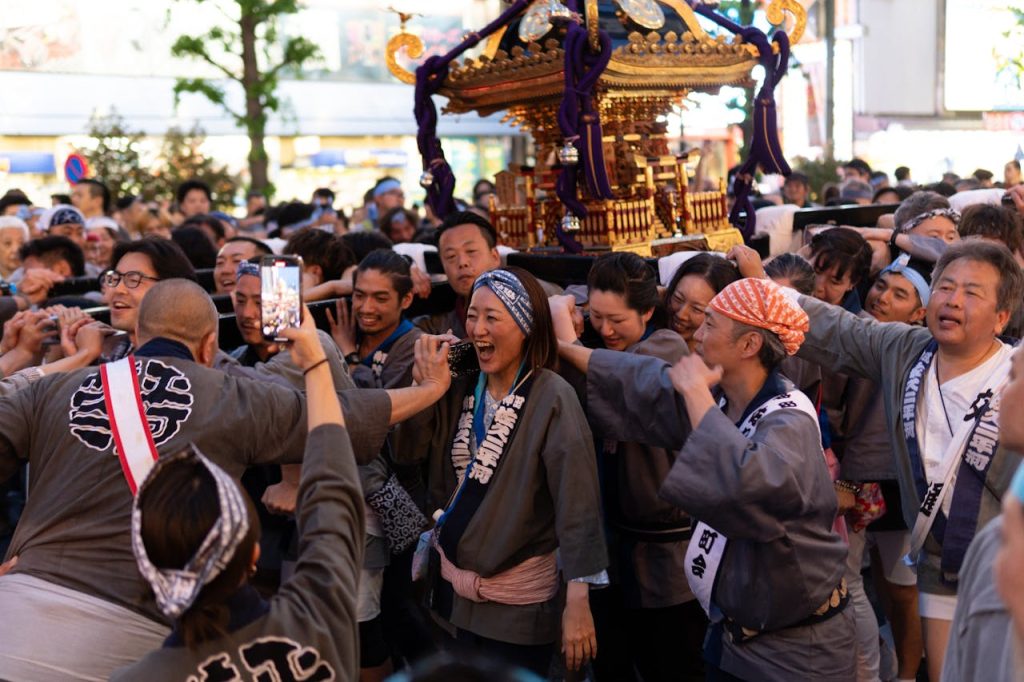Your cart is currently empty!
In Japan, You Can Pay Companies to Make You Completely Disappear and Start a New Life – It’s Called “Johatsu” and Police Won’t Even Look for You

What happens when the pressure to conform becomes unbearable? In Japan, thousands each year choose a path that is almost unheard of elsewhere: they vanish. Known as jouhatsu, or “evaporation,” this phenomenon blurs the line between personal reinvention and cultural silence and raises questions about what drives people to erase themselves from their own lives.
Japan’s Hidden Phenomenon of “Evaporation”
In the landscape of modern Japan, there exists a phenomenon rarely addressed in mainstream conversation but increasingly documented in books, films, and reporting. Each year, tens of thousands of people leave behind their jobs, homes, and families, slipping quietly into anonymity. They are known as jouhatsu — literally translated as “evaporation.”
Among them is Sugimoto, a 42-year-old businessman who walked away from his family and his obligations. “I got fed up with human relationships. I took a small suitcase and disappeared,” he told the BBC. His departure was not a matter of crime or scandal, but of suffocating social expectation. It’s the pressure to inherit and sustain his family’s local business in a community where everyone knew his name. The decision, he explained, was less about rebellion than exhaustion. “I constantly have a feeling that I’ve done something wrong,” he said. “I haven’t seen [my children] in a year. I told them I’m on a business trip.”

Stories like Sugimoto’s illustrate how jouhatsu is not urban legend but cultural reality. Though the practice gained greater visibility in the 1990s during Japan’s economic collapse, its roots go back decades. Initially linked to bankruptcy and debt, the disappearances soon revealed a broader range of motivations: social pressures, family strain, and a longing for solitude.
French journalist Léna Mauger and photographer Stéphane Remael investigated this hidden population in their book The Vanished: The “Evaporated People” of Japan. They described jouhatsu not as fugitives but as individuals “too tired to exist as expected.” In a society where deviation often carries stigma, disappearance becomes, for some, the final act of autonomy.
Far from a uniquely Japanese issue, the phenomenon resonates more widely. In cultures that reward perfection but punish vulnerability, the choice to vanish speaks less to disappearance than to disconnection and raises urgent questions about the weight societies place on conformity.
The Social Contract of Silence
In many countries, a missing person’s case immediately sparks alarms, police reports, and public searches. In Japan, the story unfolds differently. Adults who disappear often do so within a system that quietly permits their absence. Police rarely step in unless a crime or accident is suspected, and privacy laws keep families from accessing financial records or surveillance footage that might reveal a loved one’s movements.
“Police will not intervene unless there’s another reason like a crime or an accident … All the family can do is pay a lot for a private detective. Or just wait. That’s all,” explained sociologist Hiroki Nakamori in an interview with the BBC.
The legal boundaries are only part of the picture. Cultural expectations weigh just as heavily. Japan’s long-standing emphasis on group harmony makes standing out or failing in public feel unbearable. From school to corporate life, conformity is seen as a social duty. Deviation, whether through divorce, job loss, or academic failure, can carry profound stigma. Journalist Léna Mauger, whose years of fieldwork chronicled the lives of the jouhatsu, reported that many disappearances were not linked to crime at all, but to the weight of social judgment.
One case often cited in her reporting is Norihiro, an engineer who was dismissed from his job. Too ashamed to tell his family, he kept up the façade of normalcy, putting on a suit each morning, leaving home as if headed to work, and then spending his days in his car. Eventually, he chose to vanish.
In a society where loyalty to the group is prized and where leaving a company can be considered disgraceful, vanishing becomes, for some, less radical than confrontation. What may appear as escape is often an act of self-preservation, silence chosen over the shame of being seen as a failure.
The Shadow Economy of Reinvention
Not every disappearance in Japan begins with a sudden decision to walk away. For many, it starts with a phone call.
Across the country, a network of discreet operators known as yonige-ya has grown quietly over the past three decades. The term translates as “fly-by-night shop,” and it describes an industry that specializes in helping clients vanish. What began in the 1990s, when bankruptcies surged after the collapse of Japan’s economic bubble, has since expanded into a service used by people from very different walks of life.
Sho Hatori, one of the first to formalize this business, recalls being surprised at how varied the demand became. “What we did was support people to start a second life,” he told the BBC. In addition to clients overwhelmed by debt, his company assisted those escaping abusive partners, relentless bullying, or the quiet despair of failed marriages.
The industry also has figures like Saita, a woman who disappeared 17 years ago to leave an abusive relationship. Today she runs her own service, offering anonymity to others who feel they have no alternatives. “There are people who run away from serious domestic violence or ego and self-interest. I don’t judge. I never say, ‘Your case is not serious enough.’ Everybody has individual struggles,” she said.
For clients, the process is not cheap. Payments are made in cash, often amounting to thousands of dollars, in exchange for secrecy and safe relocation. Some are moved into anonymous apartments in Tokyo or Osaka, where the density of urban life allows them to dissolve into the crowd.
While the practice may appear illicit from the outside, it functions less like organized crime and more like a hidden infrastructure for reinvention. Hundreds make use of these services every year, underscoring how normalized the act of vanishing has become, even as it remains largely unspoken.
For those who feel cornered by circumstance, yonige-ya provide not just logistics, but something harder to find in a society bound by obligation: the possibility of a second beginning.
When Disappearance Becomes Its Own Aftermath
For those who vanish, the decision can bring immediate relief. For those left behind, it often creates a wound that does not close.
Families Suspended in Silence
Relatives of the jouhatsu live in a state psychologists call “ambiguous loss,” a grief without resolution. Loved ones are not officially gone, yet they are unreachable. This form of absence keeps families locked between hope and despair, unsure whether to wait, to search, or to mourn. In Japan, where privacy laws prevent access to bank or surveillance records, families are often left with little more than questions that grow heavier with time.
A Harsh Reality for the Vanished
For those who do disappear, survival is rarely romantic. Many find themselves in the margins of society, working unstable and often dangerous jobs that require no paperwork and no questions. Investigations into the aftermath of the Fukushima disaster revealed that some of the workers tasked with radioactive cleanup were drawn from this hidden population, individuals whose invisibility made them easy to recruit and easier still to discard.
Absence on Paper
Japanese law recognizes the vanished after seven years as “absent,” dissolving marriages and unlocking inheritance rights. On official documents, the missing are accounted for. In emotional terms, they are not. The administrative erasure of a spouse or parent does little to resolve the silence of their absence.
The aftermath of disappearance reveals two parallel realities: one in which families continue to wait, and another in which the vanished attempt to rebuild in obscurity. Neither side finds closure.
Lessons From a Culture of Disappearance
The jouhatsu phenomenon may feel uniquely Japanese, but it raises questions that reach far beyond national borders. What does it mean when the only perceived escape is erasure? And how can societies offer alternatives that prevent silence from becoming the last resort?

Here are several insights the rest of the world can take from Japan’s “evaporated people.”
- Silence carries a cost
The idea of gaman, enduring hardship without complaint, is deeply ingrained in Japanese culture. Yet as the jouhatsu illustrate, constant suppression of struggle can push people to the margins. Recognizing that silence is not resilience, but often a warning, is a critical shift for any society. - Social expectations can weigh as heavily as financial debt
While economic hardship often plays a role, many disappearances are triggered by stigma attached to divorce, academic failure, or job loss. It is a reminder that cultures everywhere must reconsider how failure is perceived and reported, whether in the classroom, the workplace, or the media. - Privacy laws can protect, but also isolate
Japan’s strict protections mean families cannot easily trace missing loved ones. The policy respects autonomy but also leaves families powerless. The lesson here is balance: safeguarding privacy while not erasing the possibility of reconnection. - Disappearance is not reinvention, it is survival
Stories of new lives in Tokyo’s anonymity may sound like fresh starts, but the reality is often low-paid, dangerous, and isolating work. It is a reminder that erasure rarely solves the pressures that caused it. Reinvention, when it happens, comes through support, not invisibility. - Every culture has its version of vanishing
In Japan, it takes the form of jouhatsu. Elsewhere, it may look like cutting off family ties, deleting social media, or relocating under another name. The lesson is that disappearance is rarely about geography. It is about the weight of expectation, and the search for relief.
Disappearance as a Cultural Mirror
The phenomenon of jouhatsu is more than a collection of individual stories. It is a cultural lens, revealing how societies handle failure, conformity, and silence. In Japan, vanishing has become a socially tolerated act, one that underscores the pressures of collective harmony and the limited space for personal deviation.

It also challenges the rest of the world to consider its own versions of disappearance. Whether through relocation, digital erasure, or quiet withdrawal from social networks, people everywhere seek ways to step out of roles that feel unsustainable.
The story of the jouhatsu reminds us that disappearance is rarely about escape alone. It is about what is missing in the structures around us — empathy, flexibility, and spaces where failure does not equate to shame. Until those gaps are addressed, the silence of those who vanish will continue to echo louder than their presence ever did.
